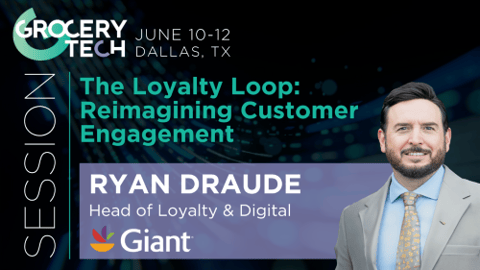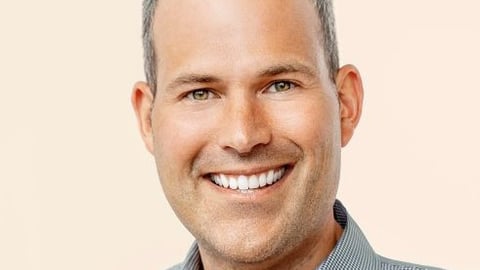EXCLUSIVE: The Next Generation of Category Management
Dr. Brian Harris is no stranger to being on the cutting edge – or, rather, leading edge – of grocery innovation. The man who came up with the concept of Category Management in the late 1980s is now looking at and investing in the future of grocery retail propelled by AI.
Harris is president and co-founder of IntentAI, a startup focused on identifying growth opportunities for retailers and CPGs through next-generation Category Management process combined with its AI software, AIRICA. In addition to Harris, IntentAI’s team includes experts with backgrounds at companies including The Kroger Co., Kraft Heinz, Procter and Gamble, Dunnhumby, IBM and Microsoft.
[RELATED: GroceryTech 2025 to Demystify AI and Computer Vision]
Progressive Grocer recently talked with Harris about how Category Management changed the industry, evolved over the years and is now ready for its next form that will save retailers time, help manufacturers connect with the right customers to deliver on key shopper needs that will drive differentiation and growth for both retailers and manufacturers.
Progressive Grocer: How would you compare the environment in the grocery industry now to when you launched Category Management practices?
Brian Harris: When I got this off the ground in the ‘80s, life in the retail lane was a heck of a lot simpler. It was all in-store – there was no online retailing of any significance. People came to the store, they made decisions on which categories and which aisles they needed to visit to fulfill their shopping and consumption needs.
Back then, if there were “category killers” and category competitors who were winning, you had to adopt a more category focus with Category Management. The progressive retailers realized that they had to change their go-to-market approach and organizational structures to be able to really manage in a way that allowed them to address the new competitiveness. It was the emergence of new competitors that was the major launchpad for Category Management, and then ECR came along and basically enshrined it.
A similar thing happened along the way when omnichannel marketing became important, because new competitors changed the ballgame. We needed to respond to that, and Category Management adapted.
Today, it’s more complex. Things happen quicker, trends happen faster and having more agility is really critical. The next generation, over the next five or 10 years, is going to be technology driven and AI is obviously a key element of that.
PG: How is the new Category Management, fueled by AI, different than the traditional principles and practices – it's not just CatMan 2.0, right?
BH: Even though Category Management has been very successful and it’s now been done for 35 years, it has some limitations. My original concept was that Category Management was the way to differentiate ourselves, and has evolved to be more tactical.
A lot of people today might think, “Oh, I have planograms and promotions and assortment planning.” That’s a piece of it, but it’s not the real reason for Category Management, which is more strategic.
Also, if it takes you a few months to build a joint business plan for a category, lots of things can change. You have to be able to do Category Management much more quickly and AI enables that.
The other thing is that Category Management tends to look at the past and present rather than trying to anticipate how categories are going to be driven by trends in the future. AI is really powerful at being able to put together all kinds of different data sources and provide much more accurate projections and much more quickly.
For the next generation of Category Management, there are two things that need to come together. First, we have to upgrade the process. The traditional eight steps play a very important role, but they've got to be upgraded and better connected to strategy. And secondly, we have to capitalize on all these new data sources. AI is going to give us the ability to do that – to connect the dots.
The next generation of Category Management, then, will be an upgraded process, above and beyond the eight steps, and driven by the power of AI. It’s not Category Management 2.0, which would be tweaking one of the steps here and there. It's absolutely next generation that builds on the traditional proven practices while addressing limitations of the industry today and provides the foundation to unlock exceptional growth opportunities for all parties involved.
PG: How fast can this new technology go, in terms of saving time for store teams? How does this free up staff to do other things, instead of merely replacing them?
BH: We were just talking to a retailer who said they were excited because they see it being more about empowering and not replacing – for people to do better work, smarter work, quicker work.
We’ve always been a people business, right? People come and see us and even if they shop online, we are still connected to people. That’s not going to change, and the human touch is going to be critical.
But at the same time, AI can help us analyze a lot more data, at a much faster pace and provide us with real-time insights that are in sync with the overall strategy so we can execute more effectively in the marketplace. With AiRICA, we are developing a Category Manager’s AI assistant that can make the teams lot more efficient and productive.
PG: Finally, on a personal level, Dr. Harris, what do you like best about this industry and its people, in terms of helping to provide them with solutions that affect and improve their day-to-day and long-term business?
BH: People in our industry tend to work in our industry for a long period of time. There are so many stories, like, “I started bagging groceries and went up through the ranks and become senior vice president.” Obviously, these are people who really understand how to connect to people.
Speaking for myself personally, in 1987, there wasn’t a single job in the world that had “Category Manager” in the title. About 10 years ago, somebody did a survey and estimated at that point there were 30,000 category managers in the world. Today, there are probably 100,000 people who have some title saying “Category Manager” and there's probably a million people who are directly involved in supporting Category Management work at retailers and manufacturers. People often ask me, “What's been the most satisfying thing for you?” It’s that. You think of all the families and all the individual growth that you've helped stimulate. Thirty-five years later, that's something that I've always felt a certain amount of pride about.







